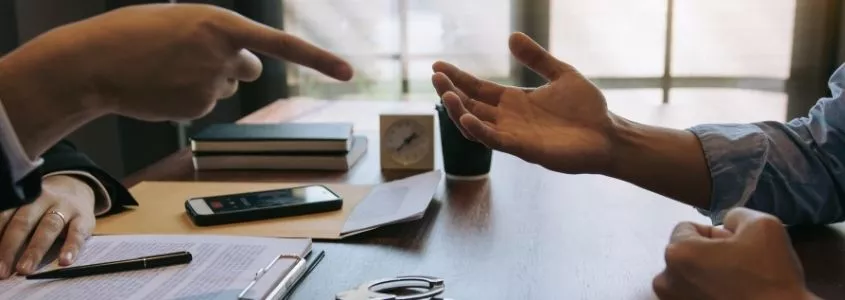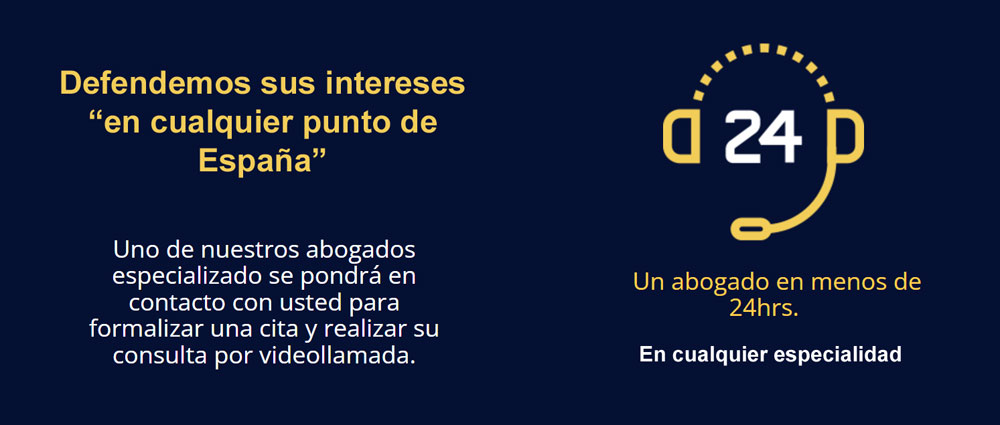
Table of contents
You may have made a complaint to someone a few days or weeks ago and now you may have regretted having done so. At this point, you are probably wondering whether it is possible to withdraw it. Here we would like to explain everything you need to know about this.
Can a complaint be withdrawn?
No, it is not possible. You have probably heard on more than one occasion, either in films or on television programmes, the expression "I'm going to withdraw a complaint", but the truth is that this is an urban legend that cannot be carried out except in very exceptional cases.
Specifically, these exceptional cases refer mostly to crimes of private prosecution such as, for example, libel and slander. But not in all other cases. What can be done is to waive the right to prosecute privately, but the Public Prosecutor's Office will continue to prosecute. Consult a criminal lawyer for advice if you find yourself in this situation.
What happens after I file a complaint?
The reason for this is very simple. When you or anyone else files a complaint, you inform the State that an action has taken place that could (and this is for the judge to decide) constitute a criminal offence. Obviously, the judicial administration cannot turn its back on that fact even if you as a victim have changed your mind. Contrary to what many people believe, practically all criminal actions contemplated in the Criminal Code are public and prosecutable ex officio.
A simpler answer to the question of what happens after filing a complaint. This action is tantamount to activating a button that sets the whole judicial machinery in motion. But it has a life of its own and cannot be stopped by pressing another one. In fact, the most likely outcome is a trial. Another thing is that, if the complainant and the accused fail to appear, either by out-of-court settlement or simple dismissal, the judge may be forced to acquit for lack of evidence. But in no case does the procedure come to a halt.
So how to withdraw a complaint? Withdrawal of criminal proceedings
We have already made it clear that you cannot withdraw a complaint once it has been filed unless it concerns libel, slander or other crimes of private prosecution. What you can do is to renounce pursuing private prosecution and express your intention not to continue. This usually results in the Public Prosecutor's Office deciding to close the case because it is not clear how to continue with the proceedings. This is particularly common when there is no other evidence beyond the victim's testimony.
It does not matter whether you want to withdraw a complaint for a misdemeanour or a felony. The problem in all cases is exactly the same. Once the judicial process is set in motion, the state is obliged to see it through to the end.
Consequences of withdrawing a complaint
Again, it is generally not possible to drop a complaint, but it is possible to drop the private prosecution. However, this has consequences in several respects.
The first of the consequences of withdrawing a complaint, or rather dropping the prosecution, is that there is no way back. By this we mean that, once the proceedings are closed or a judgment of acquittal is issued for lack of evidence due to this reason, there is no recourse and no possibility to file another complaint for the same facts.
This can be really detrimental to you if you have been a victim. Imagine you have an altercation with a neighbour, you report it to the police and then decide to withdraw a complaint for assault to avoid getting into more trouble or for fear of reprisals. It is possible that, at the same time or later, your neighbour may file another complaint against you for the same facts. At that point, you can only defend yourself, not "attack".
But there is more. There are situations in which the complainant is obliged to testify as a witness, as he or she does not have the possibility of taking advantage of an exception provided for by law (spouses, ascendants, descendants, etc.). Failure to do so, as well as refusing to testify or declaring something other than what was initially stated, can lead to the charge of disobedience to the judicial authority or false testimony. Remember that, at this point, you are legally obliged to tell the truth, even if you wish to withdraw your complaint.
How long does it take to withdraw a complaint?
There is no time to withdraw a complaint except in cases of crimes of private prosecution. In these cases, the competent court sends a communication to the complainant for the purpose of ratification. This usually takes about 2 months. If this is not done, the proceedings are stopped.
It is often thought that withdrawing a complaint for a minor offence is easier than withdrawing a complaint for a serious or basic offence. But, in reality, it is just as unfeasible once the judicial machinery is set in motion.
Withdrawing an abuse complaint
Gender violence is undoubtedly one of the most important social scourges of recent decades. That is why, although it is not possible to withdraw a complaint of abuse, there are particular difficulties in continuing with the process when the victim decides not to pursue private criminal proceedings.
Bear in mind that what is reported in these cases is the partner who, in many cases, is the father of the victim's children. Therefore, emotionally, it is particularly complex to go ahead. The fear of reprisals and of harming the victim often takes over in many cases. In addition, when there is no injury report or similar evidence, it is practically impossible for the public prosecutor or the judge to find a way to continue the process without the woman's testimony. It is important to make her aware that withdrawing a complaint of assault is never a good idea as it is likely to happen again.
In short, although it is not possible to withdraw a complaint except in the case of crimes of private prosecution, you do have the possibility of forcing the case to be closed or the issuing of an acquittal for lack of evidence by waiving the private prosecution. However, this can have very detrimental consequences. Therefore, in order to understand how to withdraw a complaint and to accurately measure the steps you should take, it is of vital importance to get in the hands of a specialised lawyer.

"Anywhere in Spain"
With our online appointment system you will have immediate advice without the need for face-to-face visits or travel.
One of our lawyers specialized in your area of interest will contact you to formalize an appointment and make your consultation by video call.


Add new comment